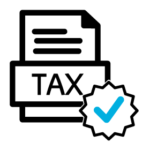Beneficial ownership transparency
To implement the beneficial ownership transparency by:
- improving the effectiveness of the central registers of beneficial owners
- ensuring effective access for law enforcement agencies and other competent authorities to beneficial ownership information for companies and other legal entities registered
- cooperating with other countries in sharing best practices and developing capacity building programmes to promote beneficial ownership transparency.
Completion Status:
Commitment filtering:
The commitment targets a sufficiently narrow policy and moves Indonesia towards achieving recognised international standards in the area of beneficial ownership transparency.
This commitment has identified concrete steps and indicators that can be used as a reference in developing beneficial ownership implementation in Indonesia.
Evaluation:
Indonesia has committed to implementing beneficial ownership (BO) transparency, improve national regulations to establish comprehensive legislation on BO, enhance compliance with BO disclosure and integrate databases. In March 2018, the government strengthened its commitment to full disclosure of company ownership through the enactment of Presidential Regulation 13/20181 and the Ministry of Energy and Mineral Resources Decree 1796 K/30/MEM/2018.2
Under these regulations, companies are required to report their beneficial owners to the Ministry of Law and Human Rights through the company register and their licence application procedures. Beneficial ownership disclosure is also part of the 2018 National Strategy on Corruption Prevention.3 BO transparency is a vital aspect of the country’s Open Government Partnership objectives. Currently, BO is also being used to avoid monopolies and prevent conflict of interest in the ownership of public resources, such as in mining business licence ownership.4
The Ministry of Law currently maintains a BO portal where company information, including legal ownership, can be accessed. As of 3 June 2020, there are around 92,372 corporations that have reported beneficial owners.5 However, as of October 2020, the BO portal can only be accessed by ministries/agencies and corporations that already have accounts in the system; the public cannot yet access the data.6
Use of the BO database by the Ministry of Energy and Natural Resources, Ministry of Agriculture, Ministry of Agrarian Affairs and Spatial Planning/National Land Agency and Ministry of Finance has remained ineffective since the data is not yet integrated into each of these agencies from the BO system. At present, BO data has only been used in the Financial Transaction Reports and Analysis Centre (PPATK), where from June 2019 to April 2020, PPATK has made a total of 2,009 information requests, of which 33 have been used in investigations.6
Challenges to effective commitment implementation
The implementation of effective BO transparency is hindered by the low number of companies that have reported BO data.7 This situation is mainly due to the self-reporting approach, which has not been accompanied by a precise corporate compliance or data verification mechanism.
Even though Article 19 of the Presidential Regulation on BO8 requires that BO be reported no later than seven working days after the corporation receives a business permit from the authorised agency, the IT systems are inadequate, which hinders compliance rates for BO information reporting.
Moreover, no specific government agency has collected BO information for foreign companies until now. The centralised registration process, managed by the Ministry of Law and Human Rights, is also considered to be ineffective because the data collected is only limited to one layer of corporate ownership so that the ultimate owner of the company cannot necessarily be found.6 There are also still different understandings in different companies about exactly what type of BO data should be disclosed in the document. Some companies appear to report minority shareholders as BOs rather than the real beneficiary owner.4
Opportunities to accelerate commitment implementation
Civil society groups and the National Corruption Prevention Joint Secretariat are currently encouraging the Ministry of Law and Human Rights to design a registration bank for BO data that can be accessed by the public.
Until now, however, these efforts have faced political and bureaucratic obstacles. The BO database needs to be developed to accommodate the BO’s transparency system, which should not be separated from the register of business entities kept by the Ministry of Law and Human Rights. In addition, the government needs to make a more concerted outreach effort to companies to explain the importance of BO information transparency.
Recommendations
The government, through the Ministry of Law and Human Rights, should comprehensively develop further public awareness regarding the benefits of full disclosure and the impact of beneficial ownership transparency on corporations through various derivative provisions passed.
The government, along with business associations bodies, needs to disclose information on BO data that has been reported and verified by the communities so that the monitoring process can run optimally.
The BO database portal needs to be developed to accommodate the BO’s transparency system, which should not be separated from the register of business entities held by the Ministry of Law and Human Rights.
The BO reporting mechanism needs to regulate sanctions for corporations that do not report the BO by establishing transparent and accountable compliance mechanisms.
Sources:
- Presidential Regulation 13/2018 on Beneficial Ownership, https://sipuu.setkab.go.id/PUUdoc/175456/Perpres%20Nomor%2013%20Tahun%202018.pdfMarch 2018↩
- Ministry of Energy and Mineral Resources, Decree 1796 K/30/MEM/2018 on Guidelines for Implementation of Application, Evaluation, and Issuing of Licenses in Mineral and Coal Mining, 2018,
https://bdtbt.esdm.go.id/wp-content/uploads/2019/12/Kepmen-ESDM-Nomor-1796-K-30-MEM-2018-tentang-Pedoman-Perizinan.pdf2018↩ - KPK, BO section in national strategy on corruption prevention,
https://aclc.kpk.go.id/wp-content/uploads/2019/09/Session6_Dedi-Haryadi_Beneficial-Ownership-in-National-Strategy-on-Corruption-Prevention.pdf2018↩ - KPK, BO section in national strategy on corruption prevention,
https://aclc.kpk.go.id/wp-content/uploads/2019/09/Session6_Dedi-Haryadi_Beneficial-Ownership-in-National-Strategy-on-Corruption-Prevention.pdf2019↩↩ - Presentation by the director general of Public Legal Administration of the Ministry of Law and Human Rights at the webinar on Transparency of Beneficial Ownership to Support Business and Investment, 3 June 2020, https://drive.google.com/drive/folders/1iAjrZBaWa57dTr0W9ppReADOFzRDtXAy3 June 2020↩
- KPK, Report of the National Strategy for Corruption Prevention, Quarter V 2020, https://stranaspk.kpk.go.id/id/publikasi/laporan-triwulan/laporan-stranas-pencegahan-korupsi-triwulan-v-20202020↩↩↩
- Publish What You Pay Indonesia, Accelerating the Implementation of Beneficial Ownership Disclosure in Indonesia, https://pwypindonesia.org/id/akselerasi-pelaksanaan-keterbukaan-beneficial-ownership-di-indonesia/1 July 2019↩
- Presidential Regulation 13/2018 on Beneficial Ownership, https://sipuu.setkab.go.id/PUUdoc/175456/Perpres%20Nomor%2013%20Tahun%202018.pdf2018↩
